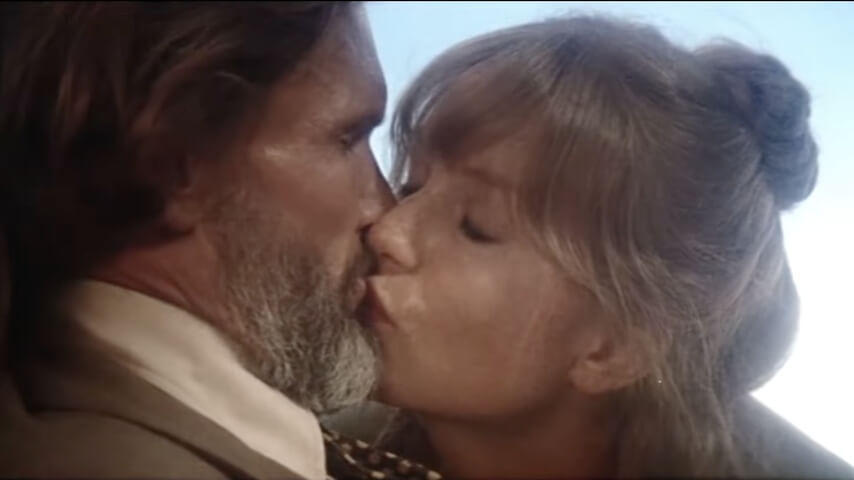Huppert cites the Michael Cimino film as her favorite “because the whole story is so big, so unusual. It was such a great film and a big thing to do, because I was there for two months and ended up staying seven months. And because it turned out to be a disaster when it was first released, but now is an iconic masterpiece.” The team “had no idea” it would be such a flop upon release, Huppert says, “because Michael had got five Academy Awards for The Deer Hunter and so he was really on top of the hill. It was only when it was the opening night in New York and you could hear the seats going boom, boom, boom as people left the room. Then we understood that we were in bad shape.”
Bad as things were for Heaven’s Gate—and they were notoriously bad, both critically and commercially—Huppert is of course correct that the movie was later reevaluated and elevated to “iconic masterpiece” status. Few actors have a resumé of iconic masterpieces like Huppert does, so she’s more than earned her spot as a great champion of cinema. Earlier this year, she expressed her concern about the “weak” state of cinema while serving as jury president at the Venice Film Festival. For The Guardian, she asserted that there is still “prestige value to moviemaking,” or else she “wouldn’t still be doing it.” Whether it has the power to “change someone’s life,” she says, “I’m not sure, but maybe it can change someone’s day—let’s be more modest. Being in a movie house for a couple of hours gives you such pleasure, a way of thinking, of being entertained. That’s what it does to me.”
“In its early days, cinema was exclusively entertaining, but, over time, it has extended its power of reflection, of questioning, of being more and more political,” she adds. “It’s a powerful weapon.”


 Keep scrolling for more great stories from The A.V. Club.
Keep scrolling for more great stories from The A.V. Club.